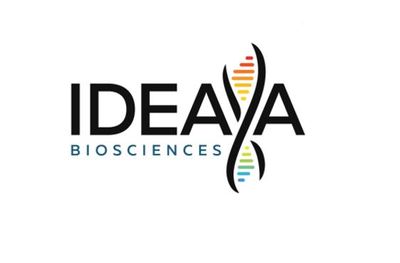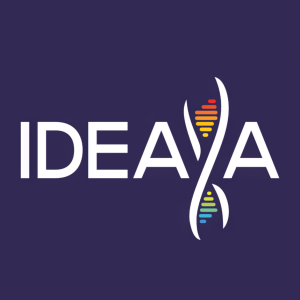IDEAYA Biosciences Announces Phase 2 Expansion of Darovasertib and Crizotinib Combination in GNAQ/11 Metastatic Cutaneous Melanoma
- Initiated Phase 2 expansion of darovasertib and crizotinib combination in GNAQ/11 metastatic cutaneous melanoma based on preliminary clinical efficacy observed
- Approximately
5% of cutaneous melanoma patients harbor a GNAQ/11 mutation, with an estimated annual incidence of ~5,000 patients in the US and ~8,000 patients in the EU28 and total prevalence of ~70,000 patients in the US and ~110,000 patients in the EU28 - GNAQ/11 is on multiple NGS and liquid biopsy platforms, enabling patient identification
"We are pleased to advance the darovasertib and crizotinib combination into a Phase 2 expansion for GNAQ/11 metastatic cutaneous melanoma, where there are currently no FDA approved therapies in this genetically-defined patient population highlighting the unmet medical need," said Dr. Darrin M. Beaupre, M.D., Ph.D., Chief Medical Officer, IDEAYA Biosciences. "As IDEAYA advances the registrational trial for darovasertib in first-line HLA-A2-negative metastatic uveal melanoma, it's a strategic priority to expand the program's clinical application in multiple solid tumor settings, including HLA-A2-positive metastatic uveal melanoma, neoadjuvant and adjuvant uveal melanoma, and GNAQ/11 cutaneous melanoma," said Yujiro S. Hata, Chief Executive Officer, IDEAYA Biosciences.
"The clinical efficacy observed in a GNAQ melanoma patient that progressed on immune checkpoint inhibitor therapies and treated in our clinic has been durable and well tolerated. This is a very important finding in this biomarker defined population," said Dr. Marcus Butler, M.D., Medical Oncologist, Tumor Immunotherapy Program, Melanoma/Skin Oncology Site Lead at Princess Margaret Cancer Centre in Toronto, Canada, and Ocular Melanoma Physician Task Force of Canada Co-Lead.
The Phase 2 darovasertib and crizotinib combination expansion is based on preliminary clinical efficacy observed in the GNAQ/11 metastatic cutaneous melanoma setting. The GNAQ/11 prevalence in cutaneous melanoma has been reported at approximately
Darovasertib (IDE196) is a potent, selective small molecule inhibitor of protein kinase C (PKC). Mutations in GNAQ or GNA11 (GNAQ/11) have been identified in approximately
__________
About IDEAYA Biosciences
IDEAYA is a precision medicine oncology company committed to the discovery and development of targeted therapeutics for patient populations selected using molecular diagnostics. IDEAYA's approach integrates capabilities in identifying and validating translational biomarkers with drug discovery to select patient populations most likely to benefit from its targeted therapies. IDEAYA is applying its research and drug discovery capabilities to synthetic lethality – which represents an emerging class of precision medicine targets.
Forward-Looking Statements
This press release contains forward-looking statements, including, but not limited to, statements related to the prevalence of GNAQ/11 mutations. IDEAYA undertakes no obligation to update or revise any forward-looking statements. For a further description of the risks and uncertainties that could cause actual results to differ from those expressed in these forward-looking statements, as well as risks relating to the business of IDEAYA in general, see IDEAYA's Quarterly Report on Form 10-Q filed on August 10, 2023 and any current and periodic reports filed with the
Investor and Media Contact
IDEAYA Biosciences
Andres Ruiz Briseno
Senior Vice President, Head of Finance and Investor Relations
investor@ideayabio.com
![]() View original content to download multimedia:https://www.prnewswire.com/news-releases/ideaya-biosciences-announces-phase-2-expansion-of-darovasertib-and-crizotinib-combination-in-gnaq11-metastatic-cutaneous-melanoma-301956860.html
View original content to download multimedia:https://www.prnewswire.com/news-releases/ideaya-biosciences-announces-phase-2-expansion-of-darovasertib-and-crizotinib-combination-in-gnaq11-metastatic-cutaneous-melanoma-301956860.html
SOURCE IDEAYA Biosciences, Inc.








